Lecture video now available for viewing.
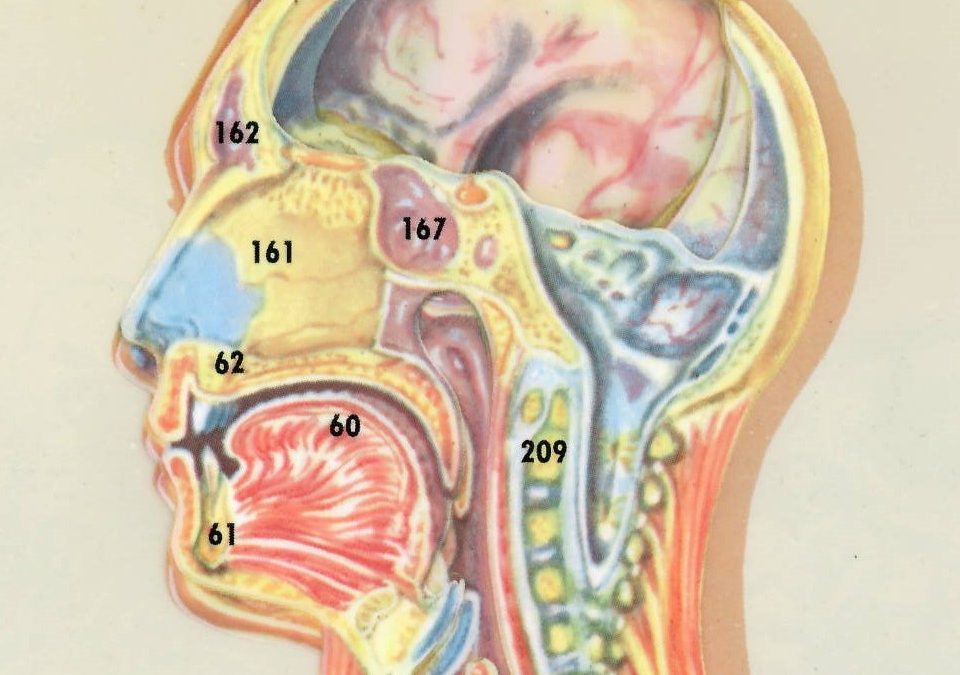
Among the joys of the spring season at the Henry R. Winkler Center for the History of the Health Professions is the annual Cecil Striker Society Lecture. On May 7, 2024 the esteemed Joseph P. Broderick, MD, medical director at the UC Gardner Neuroscience Institute and professor of neurology in the UC College of Medicine addressed the assembly at Kresge Auditorium for the 15th Striker Lecture.
Dr. Broderick’s Cincinnati Neurology: From Astute Human Observations to Life-changing Therapies chronicled the leadership of the Department of Neurology & Rehabilitation Medicine, the vast advances in neurological science and treatments.Through an examination of history and subtle humor, Dr. Broderick took the audience on an epoch journey of brain science discoveries that have transformed neurological science during his esteemed career. He enlightened that in the 1950s and 1960s neurological conditions and diseases most often led to patient death, while today with the advances in neurology there is much hope for patients and their families.
2024 Cecil Striker Society Lecture
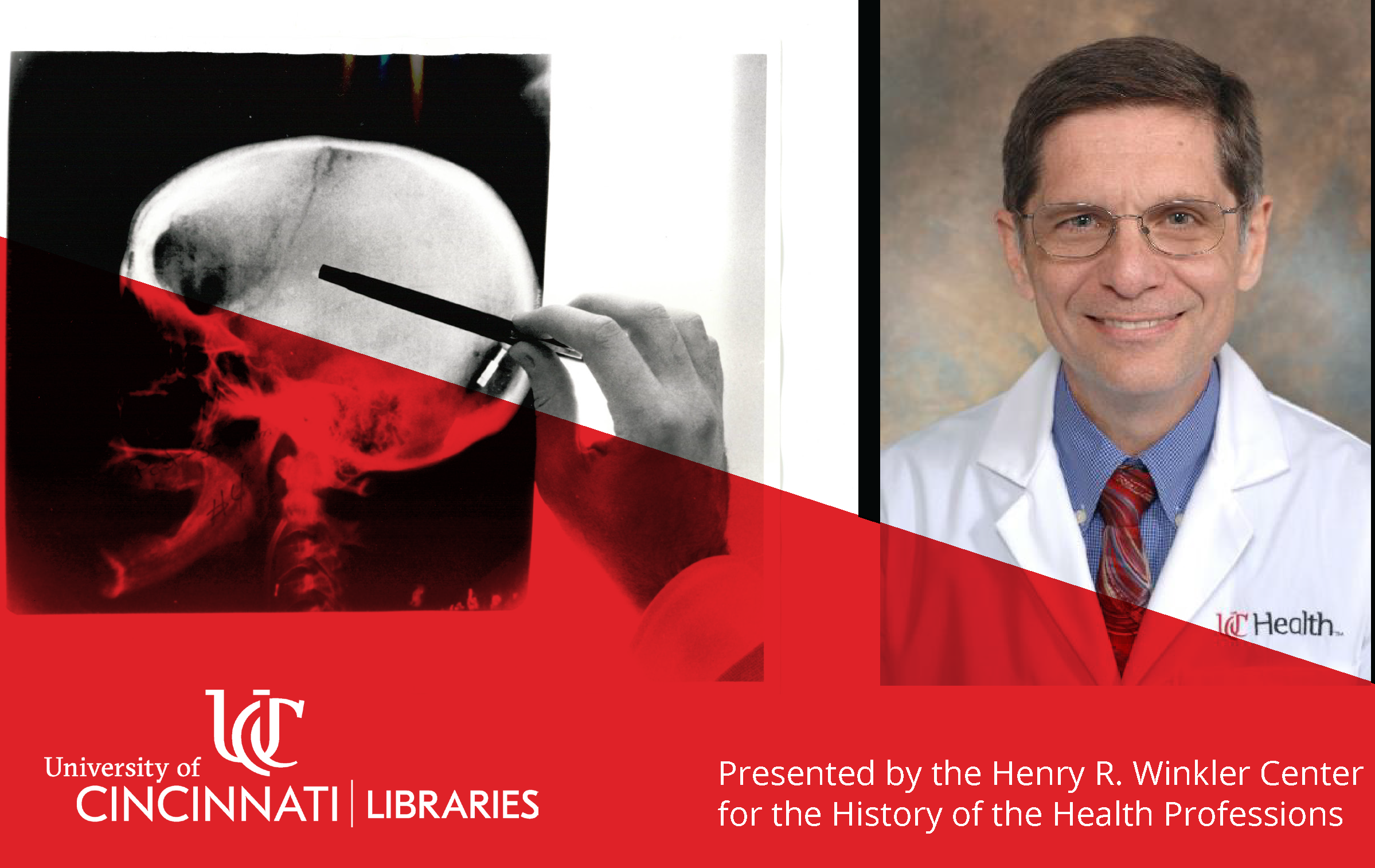
Looking Back at the University of Cincinnati College of Medicine Department of Neurology
The topic of each lecture is honored with a year-long exhibition in the Stanley J. Lucas Boardroom. The 2024-2025 exhibit, Looking Back at the University of Cincinnati College of Medicine Department of Neurology features Joseph P. Broderick, MD, Charles Aring, MD, Robert Lukin MD, John Tew, MD and Fred Samaha, MD.
Joseph Broderick, MD, professor, director of the UC Gardner Neuroscience Institute at the University of Cincinnati Academic Health Center, and director of the National NIH StrokeNet is a distinguished stroke expert and neurologist. He is a founding member of the UC Stroke team and a full staff member at all UC Health hospitals. Dr. Broderick is the principal investigator for the National Coordinating Center for StrokeNET, an NIH-funded network of 25 regional stroke centers and 500 hospitals nationwide.
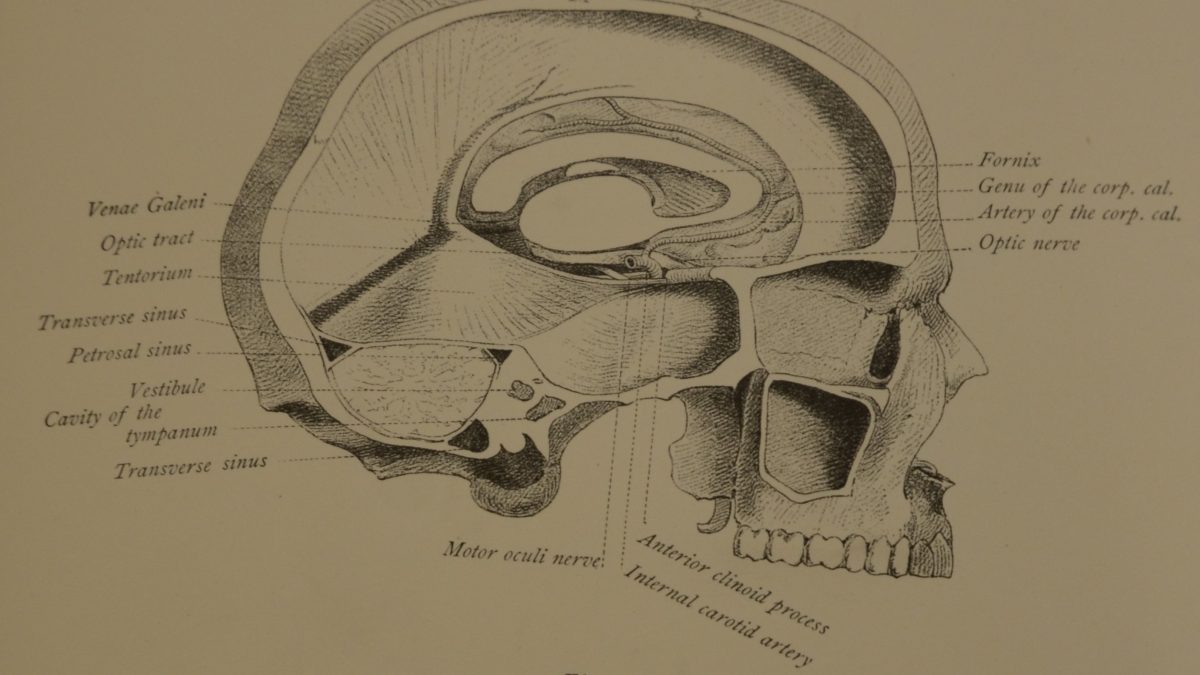
Leading one of the most notable stroke centers in the world, Dr. Broderick is a paramount member of the University of Cincinnati Medical Center. His expertise is internationally renowned in treating stroke and neurological disorders earning celebrated awards. These include the Daniel Drake Medal at the University of Cincinnati, the National American Heart Association Clinical Research Prize, the University of Cincinnati William Howard Taft Medal for Notable Achievement, the World Stroke Organization Award for Contribution to Clinical Stroke Research, the William B. Feinberg Award for Excellence in Clinical Stroke from the Stroke Council of the American Heart Association, the Healthcare Heroes Award for Innovation from the Cincinnati Business Courier and a Samuel Kaplan Visionary Research Award from the American Heart Association.
Charles Aring, MD, founder of the Department of Neurology, University of Cincinnati College of Medicine. Dr. Charles Aring faced great adversity when he endured poliomyelitis in infancy and was orphaned by age six. He moved to the Cincinnati General Hospital at age 15 working as an office boy and attended Walnut Hills high school at night. Dr. Aring graduated from UC with a Bachelor of Science and continued his education at the UC College of Medicine graduating in 1929. Throughout his scholastic pursuits he worked at the Medical College Bookstore and the information office at Cincinnati General Hospital. His internship at the hospital occurred during an outbreak of Jamaica Ginger Palsy. This experience inspired a life-long interest in neurology and a specialty in Neuropsychiatry.
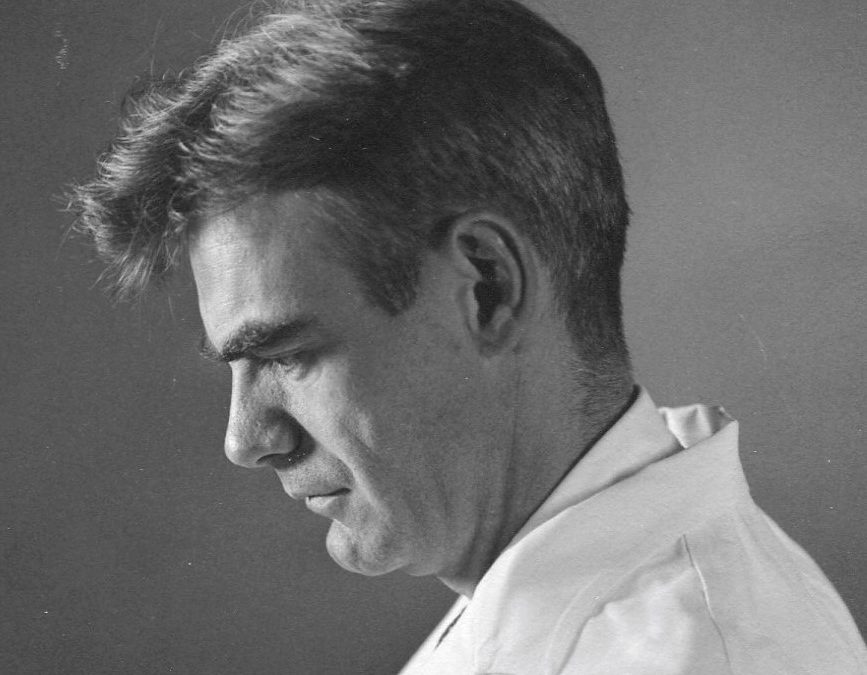
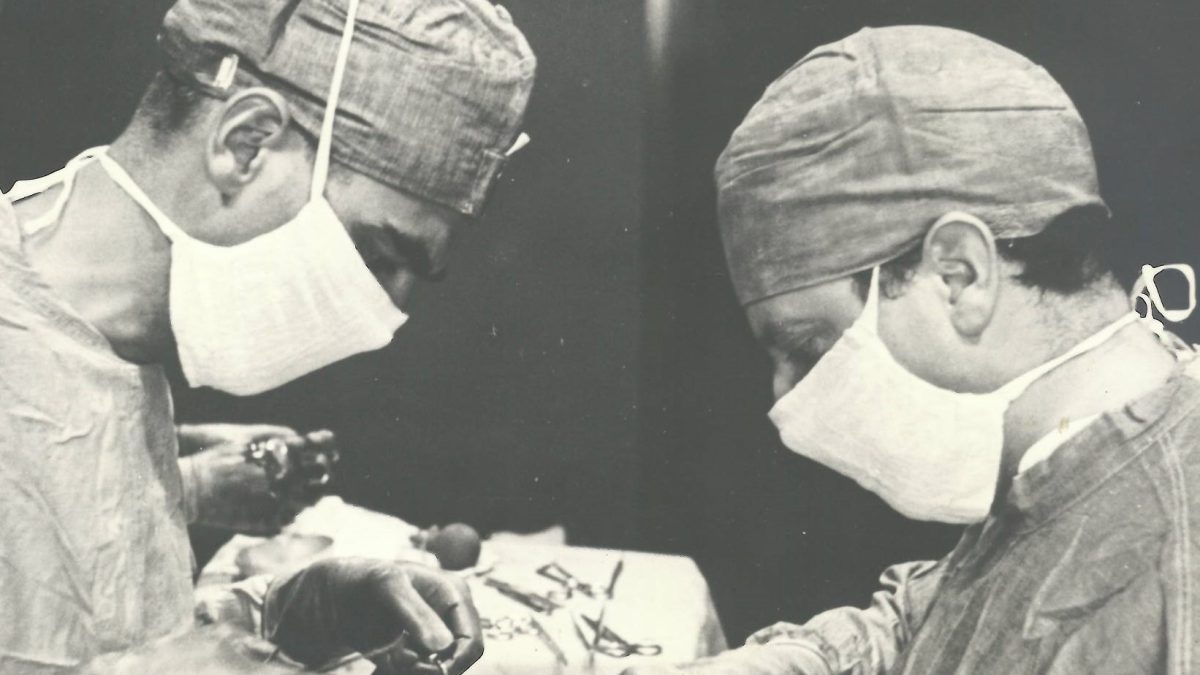
Robert Lukin, MD, Department of Radiology, University of Cincinnati College of Medicine attended the University of Cincinnati College of Medicine and graduated as a member of Alpha Omega Alpha in 1965. Six years later he graduated from the University of Cincinnati radiology residency program and joined the Department of Radiology faculty after completing a combined Neuroradiology/VA Teaching fellowship. His neuroradiology specialty training was well-timed with the developing new imaging technology which would transform modern diagnostic medicine. Dr. Lukin’s 22 years of leadership as director of Neuroradiology and 16 years as Chair of Radiology ascended the department to become one of the premier imaging programs in the United States through his advocacy of computed tomograph (CT) and magnetic resonance (MR) imaging. He was pivotal in securing the first CT scanner for the department.
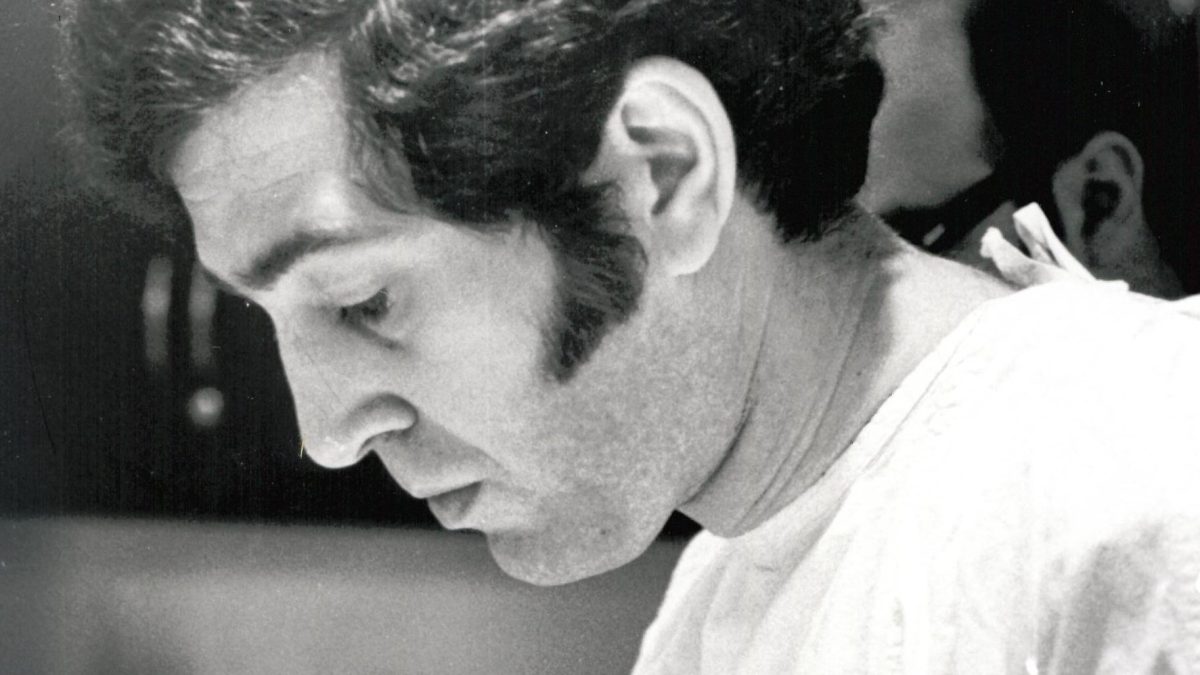
Dr. Lukin is honored with copious awards in the specialty of radiology. These include the dedication of the UC Department of Radiology annual Benjamin Felson Lecture. His exceptional contributions to the field of neuroradiology are acknowledged by the American Society of Neuroradiology Gold Medal, the organization’s highest honor. Dr. Lukin served as a Trustee of the American Board of Radiology facilitating the subspecialty certification in neuroradiology. His service is recognized by the American Board of Radiology Lifetime Service Award. The University of Cincinnati College of Medicine honored Dr. Lukin with the Robert R. Lukin Endowed Chair of Radiology and the Robert Lukin Fund endowment supports research and education efforts of the neuroradiology program.
John Tew, Jr., MD, professor, Neurosurgery, University of Cincinnati College of Medicine leads UC Health Integrative Medicine and the UC Center for Integrative Health and Wellness, contributing to the quest of whole-body overall wellness. For 15 years, Dr. Tew was the Clinical Director of UC Neuroscience Institute, and he led as the chair in the Department of Neurosurgery at the University of Cincinnati Medical Center for 20 years. During this period, he was the director of the Division of Cerebrovascular Surgery for 19 years. Dr. Tew is a significant contributor to medical advisory boards, among many include co-chairman of the Acoustic Neuroma Association’s Medical Advisory Board, a member of the Hemifacial Spasm Association’s Medical Advisory Board, and a member of the UC Brain Tumor Center’s community advisory council.
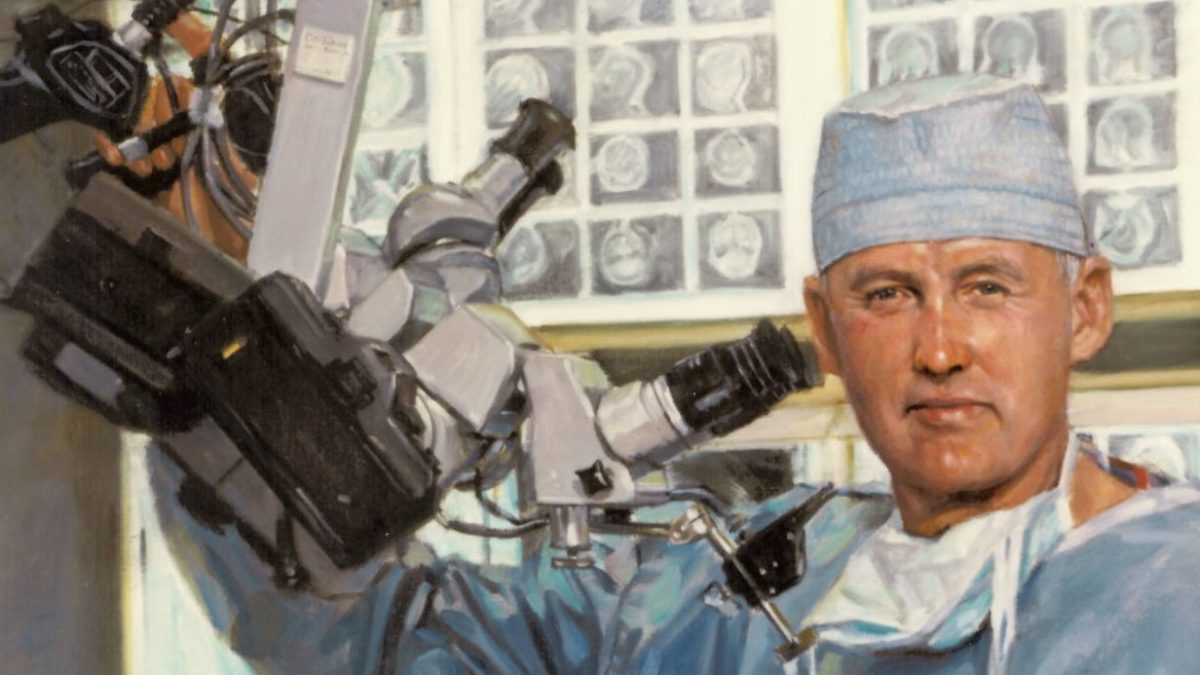
Fred Samaha, MD, Department of Neurology, University of Cincinnati College of Medicine is a pediatric neurologist and is affiliated with Cincinnati Children’s Hospital. He led the Department of Neurology for 23 years. The UC Gardner Neuroscience Institute was established during his leadership of the department. It has grown into a team of more than 85 experts from nine specialties who collaborate across disciplines to provide the most comprehensive diagnoses and treatments possible.
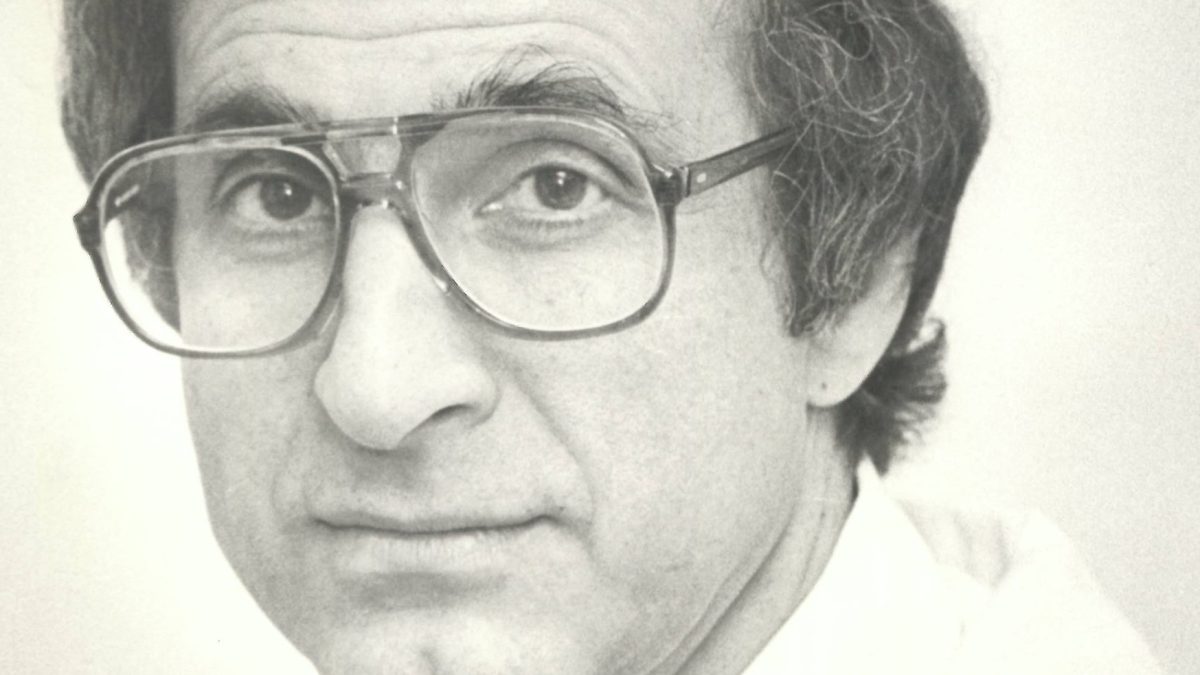
Dr. Samaha is committed to the highest standards of patient care, research and education through an integrated approach and multidisciplinary care. The Fred Samaha Education Fund supports the visiting professors program. The fund provides research incentives for the residents in Department of Neurology and upholds a neuroscience library collection for the faculty, residents, and fellows. He is honored with the University of Cincinnati College of Medicine Distinguished Alumni Award.
Academic libraries and archives are revered institutions in the pursuit of scholarship excellence. The Henry R. Winkler Center for the History of the Health Professions is fortunate to have wonderful friends who support our mission. We are grateful to our donors whose loyal generosity and partnership make the Cecil Striker Society lecture possible. The Winkler Center would like to thank the following donors for their generous support to the Cecil Striker Lecture Endowment Fund: John Bossert, Bill and Ellen Camm, Cincinnati Children’s Hospital Medical Center, Ken and Johnie Davis, Phil and Linda Diller, Mike and Rebecca Farrell, Carl and Joyce Fischer, Bill Hurford and Lesley Gilbertson, Rick and Laura Kretschmer, Cecil Striker*, Ted* and Carol Striker, UC Health, and Carolyn and Creighton Wright (* denotes deceased)
